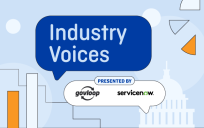Consider all the information passing through 911 dispatch centers on a daily basis: addresses, names, medical conditions and more are shared so that first responders can do their jobs and arrive on scene prepared. By collecting key data, emergency response teams can cut down on response time and understand who in the community may be vulnerable or needs extra help in the event of an emergency.
911 is a treasure trove of information, offering insight into the needs and lives of residents that can ultimately help first responders and law enforcement better serve their communities. The challenge is collecting that data and putting it to meaningful use, while also being mindful of the privacy of citizens. Public safety agencies can take steps to begin harnessing this data and still boundaries. Here are some things they should consider when trying to put the data from 911 into action:
Collect Data Voluntarily
Whenever governments – whether local, state or federal – think about collecting data to better serve the public, the privacy of citizens must be top of mind. Therefore, 911-affiliated government agencies should turn to opt-in options that allow residents to share information they want first responders to have in the event of an emergency.
While this can seem like a roadblock to accessing the vast amounts of data available to 911 services, it doesn’t mean that public safety and emergency response can’t be equipped with valuable information just the same. A community’s decision to implement a voluntary database can have a meaningful impact on 911 operations. Simple, inexpensive tools, like an online registry, can help state and local officials easily identify individuals and households that may be in need of special assistance, and can help first responders understand callers’ unique needs before they arrive on scene. In addition, this type of crowdsourced resident data can be both protected and shared across key stakeholders, addressing a growing need for public health and safety departments, while also securing resident privacy.
Enhance Emergency Response
When first responders have access to critical data ahead of time, they can execute a more prepared response and anticipate the needs of an individual.
While dispatchers always collect certain information when someone calls in an emergency, they may not be able to collect every detail needed to paint a full picture for first responders. For example, since dialing 911 can often be a panicked or chaotic moment for the caller, they may not think to volunteer critical information that could better inform the response, such as if they have asthma, allergies or underlying conditions. Likewise, there are some scenarios the caller simply can’t provide any information because they may not be able to breathe or speak.
Yet having this information is extremely valuable, and even more so if citizens volunteer it ahead of time, as it can lead to a quicker, better response. For example, if someone is calling in because they are having difficulty breathing, and the dispatcher sees that they are in a self-directed quarantine, dispatch can send first responders in with not only extra PPE for their own protection, but things like oxygen or an inhaler to help address the caller’s needs.
Identify Those in Need
In addition to aiding response, this data can also be used proactively to anticipate needs throughout the community. Public safety, health and emergency management agencies don’t always know where vulnerable populations live in their municipalities, making it difficult to proactively identify those at risk and respond to their needs appropriately
When 911 and the appropriate personnel have access to certain information, however, they can take steps to reach out, communicate and prepare the most vulnerable members of the community for whatever emergencies lie ahead. For example, consider hurricane season. Many coastal towns have to evacuate during dangerous storms, but some residents are not always able to up and leave on a moment’s notice. When emergency management or public safety officials can see who in the community, for instance, are on oxygen ahead of a storm, they can check in on that resident and make sure that if they’re not able to leave, that they have enough oxygen and other supplies to make it to the other side of the storm.
The more information that is provided to public safety officials, the better they can support, communicate with and help those who need it most. By implementing a voluntary registry system, governments and agencies can begin to harness the power and data available to 911, ultimately enabling them to better serve their communities.
Todd Miller manages all field operations at Rave. Prior to joining Rave, Todd managed the self-service consulting Practice at Oracle where he was responsible for the delivery of customized software solutions for clients in North America, supporting millions of users. At Oracle, he was awarded recognition as a member of Oracle’s top 10% in Consulting. Todd’s previous experience includes leading consulting teams for Siebel and eDOCS in North America, Europe, and Australia.





Thank you for this insightful post – super useful!